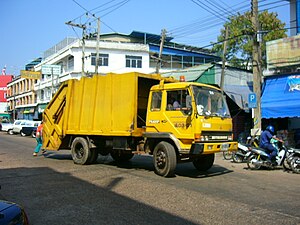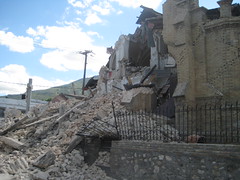A 2009 study into the operations of 60 major mining and manufacturing firms in Ghana have revealed the low level of adherence to environmental standards in the country. The study, which was carried out from January to December by the Environmental Protection Agency (EPA) rated the companies on a five-color coded scheme: red for poor performance up to gold for excellent.
The companies were measured on how they met the legal requirements in hazardous waste management, toxic releases and non-toxic releases and monitoring and reporting. The rest are environmental best practice, community complaints and corporate social responsibility. Apart from Abosso Goldfields and Ghana Manganese, all other companies including AngloGold Ashanti, Coca Cola and Guinness Ghana Breweries were rated red. The two companies scored orange.
As I listened to Joy FM (99.7) I got a bit worried about this whole exercise. A representative of one of the mining companies which rated red challenged the outcomes, indicating that they have periodically submitted reports and liaised with the EPA on their operations and that if there were problems the EPA would have drawn their attention. So they cannot understand how that report can be true. However, one of the mining directors at the EPA insisted that the results of the study could not have been flawed given the fact that the companies themselves responded to assessment questions, which when compared to the standards fell short.
Another area of concern to me: The EPA says the initiative is aimed at naming and shaming the guilty companies so they would step up their game. What is the meaning of this? Residents in these mining communities have long been suffering from the effects of chemicals and hazardous waste which have been discharged into river bodies and on land surfaces. Many people have lost their livelihoods and sometimes lives, and the EPA is talking about naming and shaming. Is this enough?
I would always compare Ghana to the developed countries. When BP spilled oiled in the Gulf of Mexico, the company was not brought into the limelight to be shamed. Instead they were forced to pay for the damages and correct or mitigate the effects of the disaster. I believe those companies should be held accountable in one way or the other. The Minister of Environment, Ms. Sherry Ayittey, upon reading the report, has only threatened to withdraw the licences of companies that do not comply with the standards after sometime. We all know that may never happen. Think of this: does the minister really have the courage to withdraw the licence of a company like AngloGold Ashanti? The politicians and analysts will be quick to calculate how much Ghana will loose in taxes and royalties, and draw our attention to how the nation will be christened as an investor-Unfriendly country.
So the question is 'What do we do when these so called business giants hurt our environment'?
Over to you.



![Reblog this post [with Zemanta]](http://img.zemanta.com/reblog_e.png?x-id=3b773dbb-1f4a-408c-9dca-1bc0b7dc2faa)


![Reblog this post [with Zemanta]](http://img.zemanta.com/reblog_e.png?x-id=97bafd38-4198-42e6-becd-97fbf07c5b0a)


